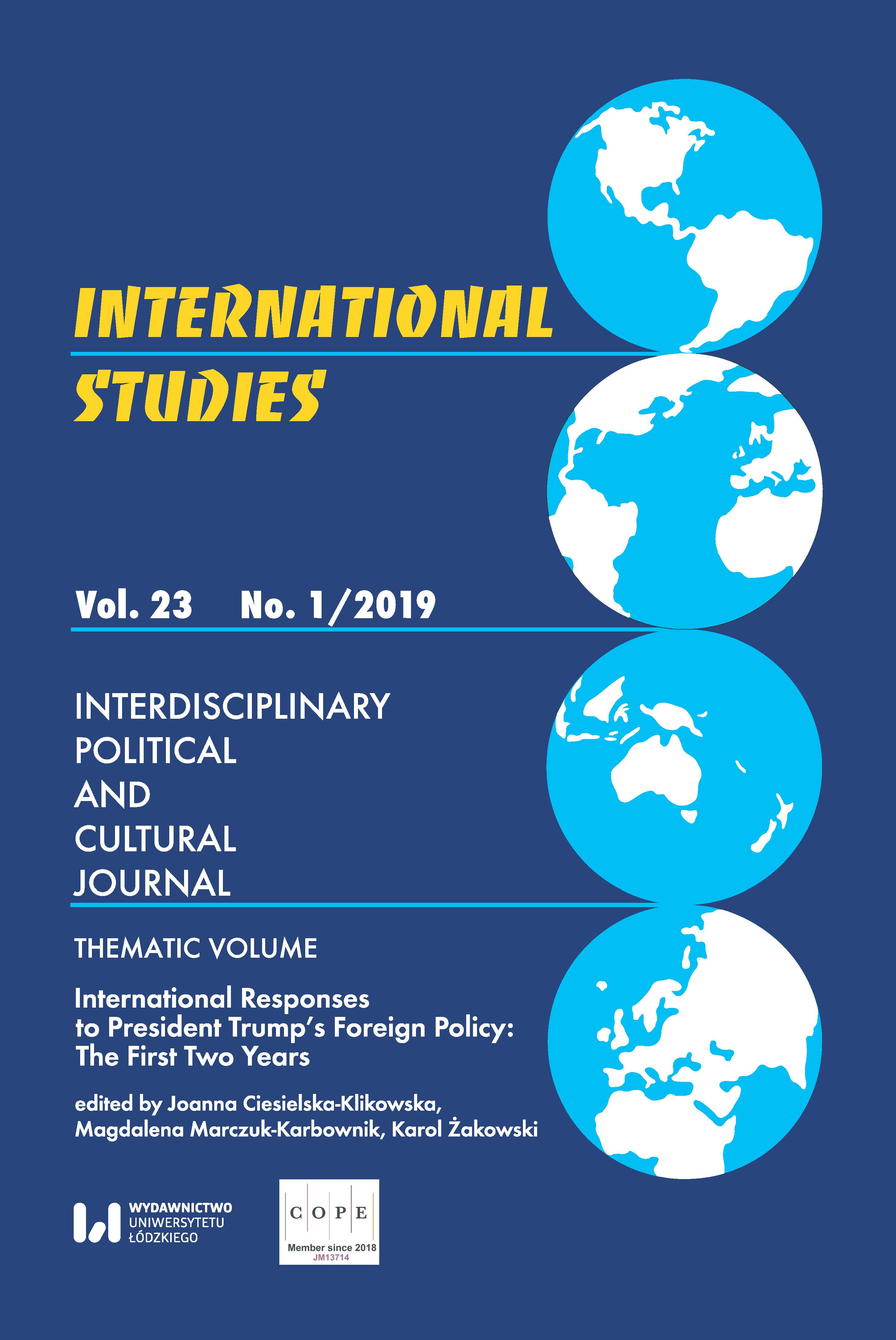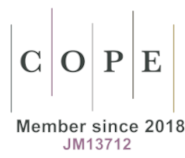Shia Armed Groups and the Future of Iraq
DOI:
https://doi.org/10.18778/1641-4233.23.14Keywords:
Iraq, Iran, Shia armed groups, Sectarian division, ISIS, New Middle East and Religious violenceAbstract
The rising and acceleration of the Shia armed group in Iraq, Syria, Yemen, and Lebanon require a deep understanding of the root of the multi-dimensional conflicts in the Middle East. An appropriate and sufficient approach to the research about these militias will be from an internal conflict rather than an external conflict. The legitimization for the existence of the majority of these militias if not all of them is to fight and struggle against an entity which is the Sunni sect, in this case, that will assimilate them not integrate them peacefully.
Downloads
References
Aziz, J. What are Iraq’s Popular Mobilization Units doing in Beirut? Lebanon pulse. “The Almonitor”, 2016. Web. http://www.al-monitor.com/pulse/originals/2016/08/lebanon-host-secret-meeting-iraq-pmus-western-diplomats.html
Google Scholar
Balcells, L. Book review of proxy warriors: The Rise and Fall of State-Sponsored Militias – By Ariel Ahram. “Democracy and Security”, no. 8 (2012), pp. 406–414.
Google Scholar
Brancati, D. Can Federalism Stabilize Iraq? “The Washington Quarterly”, no. 27 (2004), pp. 7–21.
Google Scholar
Carey, S.C., Mitchell, N.J., & Lowe, W. States, the security sector, and the monopoly of violence. “Journal of Peace Research”, no, 50 (2013), pp. 249–258.
Google Scholar
Cockburn, P. Cricket but no Chess in Sistani’s Vision for Democratic Iraq. “The Independent News of the World”, 2005. Web. http://www.independent.co.uk/news/world/cricket-but-no-chess-in-sistanis-vision-for-democratic-iraq-1529714.html
Google Scholar
Cole, J. Top 10 Mistakes of Former Iraq PM Nouri al-Maliki (that ruined his country). “Juan Cole’s Blog”, 2014. Web. http://www.juancole.com/2014/08/mistakes-Maliki-country.html
Google Scholar
Dahm, Jochen. Gombert, Tobias. Krell, Christian. Foundations of social democracy. “Akademie für Soziale Demokratie” (2017), pp. 79–85.
Google Scholar
Ekman, J. Political participation and regime stability: A Framework for Analyzing Hybrid Regimes. “International Political Science Review”, no. 30 (2009), pp. 7–31.
Google Scholar
Evans, G. Only self-rule will bring stability to Iraq. The Crisis Group. Op-ed, Middle East & North Africa, 2003. Web. https://www.crisisgroup.org/middle-east-north-africa/gulf-and-arabian-peninsula/iraq/only-self-rule-will-bring-stability-iraq
Google Scholar
Golkar, S. Captive Society: The Basij Militia and Social Control in Iran. New York, NY: Columbia University Press, 2015.
Google Scholar
DOI: https://doi.org/10.7312/golk70442
Gordon, M., & Schmitt, E. Saudi Arabia will grant US request for anti-ISIS training program. “The New York Times”, 2014. Web. https://www.nytimes.com/2014/09/11/world/middleeast/saudi-arabia-isis.html?_r=1
Google Scholar
Hague, R., & Harrop, M. Comparative Government and Politics. Basingstoke, UK: Palgrave Macmillan, 2010, pp. 83–99.
Google Scholar
Hamilton, S. Outsourcing US defense: National security implications –UPDATED: Industry insights. “The National Defense”, 2011. Web. http://www.nationaldefensemagazine.org/archive/2011/January/Pages/OutsourcingUSDefenseNationalSecurityImplications.aspx
Google Scholar
Hawn, J. Intro to global security: Defining mercenaries and militias, 2013. Web. http://introglobalsecurity.blogspot.com/2013/02/defining-mercenaries-and-militias.html
Google Scholar
Khedery, A. Why we stuck with Maliki – and lost Iraq. “The Washington Post. Opinions”, 2014. Web. https://www.washingtonpost.com/opinions/why-we-stuck-with-maliki--and-lost-iraq/2014/07/03/0dd6a8a4-f7ec-11e3-a606–946fd632f9f1_story.html?utm_term=.c59a1a63d94f
Google Scholar
Lutterbeck, D. Between Police and Military: The New Security Agenda and the Rise of Gendarmeries. “Cooperation and Conflict”, no. 39 (2004), pp. 46–47.
Google Scholar
Massoud, A. About hybrid countries in the Arab world. “The Arab Weekly Newspaper”, 2015. Web. http://www.alarab.co.uk/article/Opinion/53177/%D8%B9%D9%86
Google Scholar
Tilly, Charles. Irregular Armed Forces and Their Role in Politics and State Formation. Cambridge University Press, 2003, pp. 37–80.
Google Scholar
DOI: https://doi.org/10.1017/CBO9780511510038.003
Tran, M., & Roberts, D. Obama to lay out plan to ‘destroy’ Isis threat as Kerry arrives in Baghdad. “The Guardian”, 2014. Web. https://www.theguardian.com/world/2014/sep/10/john-kerry-baghdad-obama-isis-strategy
Google Scholar
Tures, J. How we enabled ISIS by disarming Iraqi militias. Huffington Post. “The Blog”, 2014. Web. http://www.huffingtonpost.com/john-a-tures/how-we-enabled-isis-by-di_b_5947796.html
Google Scholar
Downloads
Published
How to Cite
Issue
Section
License

This work is licensed under a Creative Commons Attribution-NonCommercial-NoDerivatives 4.0 International License.

















